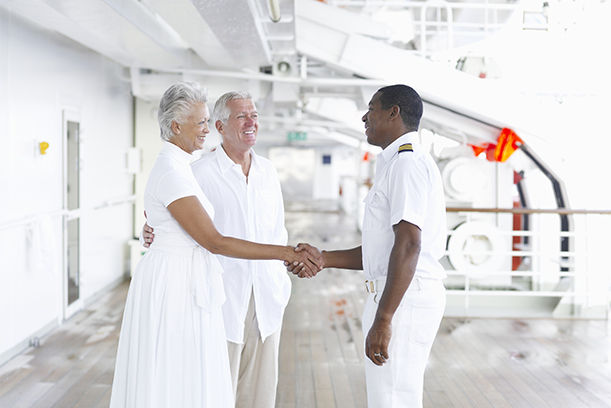 The cruise industry has always provided an amazing opportunity for those looking to travel as well as expand their career to something different from the norm. However, seafarers don’t simply step onto the gangway and into a job. A cruise operator must place substantial time and expense in sourcing, recruiting and training of its seafarers.
The cruise industry has always provided an amazing opportunity for those looking to travel as well as expand their career to something different from the norm. However, seafarers don’t simply step onto the gangway and into a job. A cruise operator must place substantial time and expense in sourcing, recruiting and training of its seafarers.
With the cruise industry currently on the verge of a massive expansion over the next 5-7 years, sourcing, recruiting, hiring, training, and ultimately retaining quality competent and qualified crew will be a critical factor for the successful cruise operator going forward. At last count, there was a minimum of 125 new cruise vessels on order. Remarkably, this growth expands across the spectrum of this industry, ranging from gigantic mass market behemoths to small, medium sized, luxury and expeditionary vessels. Accordingly, a conservative estimate of new seafarers to be sourced, hired, retained and required to crew this influx of diverse vessels is upwards of 150,000. With all this growth, and new cruise ships of all types and designs on the horizon, what steps have you taken to get yourself ready?
Crew Will Require More Specializations Than Ever Before
Not only will a plethora of new crewmembers be required, but the future of the cruise industry will entail more advanced crew specialization, including sectors that have never been seen before. The evolution of LNG (Liquid Natural Gas) power will necessitate new specialized technical education and training for engineers. Up to 40 new luxury vessels (and counting) implies a need for staff with a higher level of white glove, concierge service experience. The over 28 new expedition class vessels will look to combine LNG technology as well as luxury service, which will result in crew that may need to be specialized in several different areas to keep onboard staffing as low as possible given the smaller capacity of these ships. In short, the cruise industry overall will need to recruit, train, and retain a new generation of specialized seafarers.
How to Set Yourself Apart from the Competition
Retaining the best crew in the wake of industry expansion will only become more of a challenge as the demand for quality specialized crew becomes more competitive. Thus, having a long-term strategy in place for employee attraction and retention will be imperative. A happy and contented crew results in higher productivity, less turnover, and as a result, hopefully, increased revenue.
There are many factors that affect overall job satisfaction: working conditions, opportunity for advancement, workload & stress level, co-workers & management and of course financial reward. Increasingly though, financial reward cannot be limited to just money in the bank at the end of the month. The solution lies in an integrated employee benefits package; and this package takes on an increased level of importance as it not only affects the officer or crew member but potentially their dependents as well.
MHG Insurance offers different insurance solutions for many areas of business. Our years of experience in working with the marine industry can assist you in maximizing the overall value that a solid benefits package brings to the table. If you would like to discuss a rolling benefits strategy or are interested in purchasing health insurance for your officers and crew, contact us at mhginsurance.com or call us at +1 954 828 1819 or +44 (0) 1624 678668. Our insurance specialists have the knowledge and experience to assist and guide you to the best coverage for your budget. MHG Insurance will be at Seatrade Miami this year! Come see us at booth 2349!
With the cruise industry currently on the verge of a massive expansion over the next 5-7 years, sourcing, recruiting, hiring, training and ultimately retaining quality competent and qualified crew will be a critical factor for the successful cruise operator going forward.